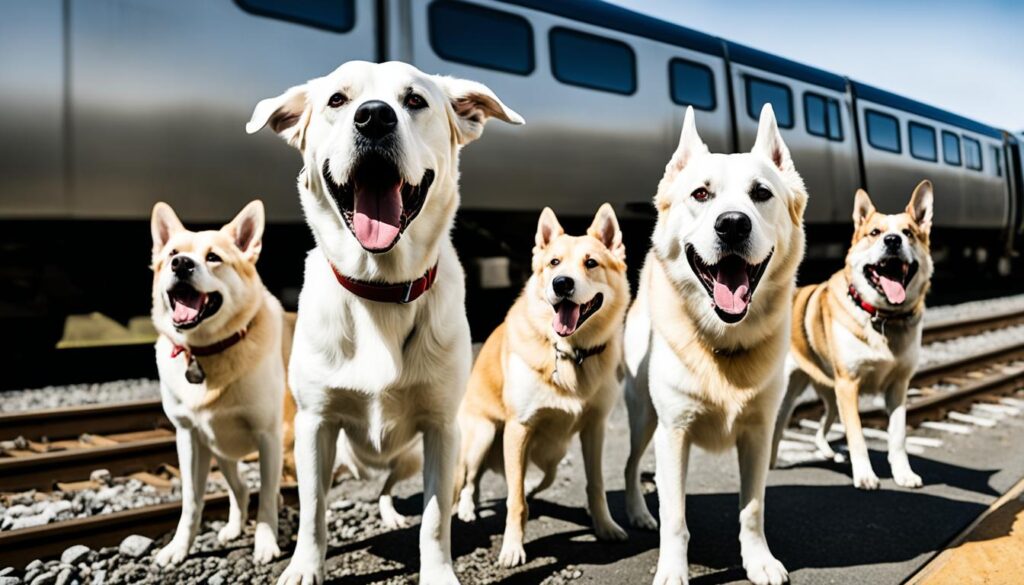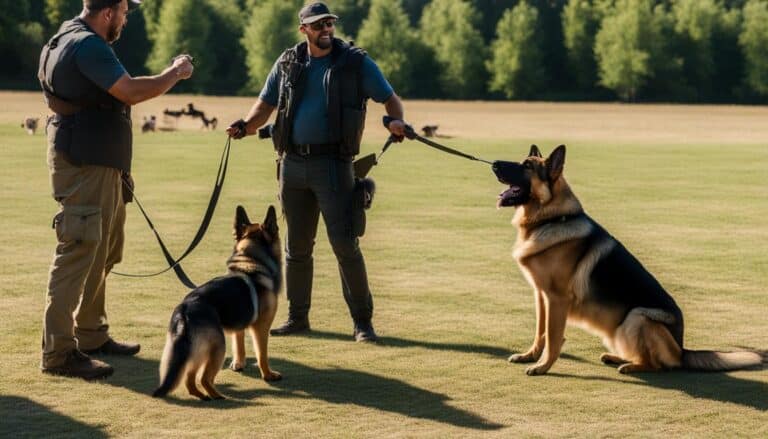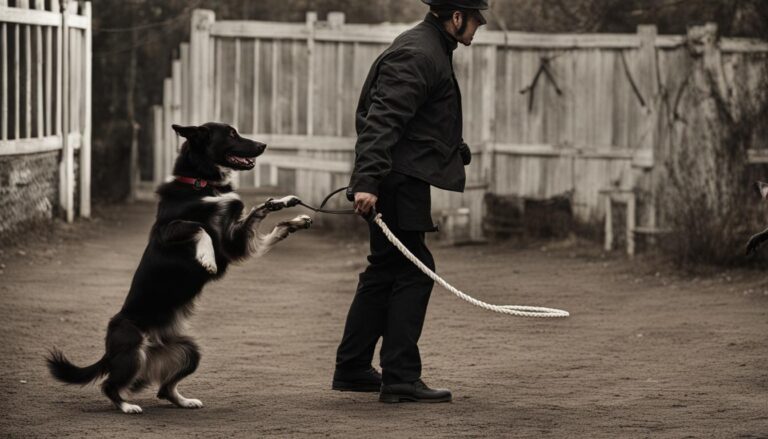Why Do Dogs Howl at Trains?
Have you ever wondered why do dogs howl at trains? It’s a common behavior that can be puzzling for dog owners. In this article, we’ll explore the reasons behind dogs’ howling behavior when trains pass by. Understanding why dogs react this way can help you address any concerns or behavioral issues you may have with your furry friend.
When it comes to why dogs howl at trains, there are a few possible explanations. Dogs have a natural instinct to howl, and the sound of a train passing by can trigger this behavior in some canines. The loud train noises may sound like another dog howling, prompting dogs to join in and communicate.
Furthermore, dogs may also be alerting their family or pack to the noise of the train. Dogs are natural protectors, and they have a keen sense of hearing. They could be trying to let their loved ones know that something unusual is happening or even trying to chase away what they perceive as a threat.
Additionally, some dogs may howl at trains out of fear. The loud noise and vibrations can be overwhelming for them, causing them to express their discomfort through howling. Certain breeds, such as hounds and working dogs, are more prone to howling at sirens, and this may also extend to train sounds.
Understanding the correlation between dogs and train noises is essential for addressing any behavioral concerns. In the upcoming sections, we will delve deeper into the different reasons why dogs howl at trains and explore how you can manage this behavior. Stay tuned!
Why do Dogs Howl at Trains: Communication and Pack Behavior
Dogs are descendants of wolves and have inherited certain behaviors and communication methods from their ancestors. One of these behaviors is howling, which serves as a natural form of communication for wolves. When dogs hear trains, they may instinctively howl because they perceive the sound as another dog howling.
Howling at trains can be seen as an attempt by dogs to communicate with their family or pack members. Through their howling behavior, dogs may be conveying various messages such as “Hey, I’m here!”, “Do you need help?”, or “This is my territory! Go away!” Essentially, they are trying to establish their presence and communicate their intentions through this primal instinct of howling.
It’s important to note that dogs perceive sirens as other dogs due to the high-pitched tone emitted by these devices. This sound resembles the howling of a dog, triggering the dog’s natural response to communicate back. While howling at trains may seem puzzling to us, it is a normal behavior for dogs rooted in their evolutionary history.
To further understand why dogs howl at trains, we can look at their pack behavior. Dogs are pack animals, and their ancestors, wolves, rely heavily on howling as a means of communication within their social structure. Through howling, wolves can locate and reunite with pack members, convey warnings, or establish territorial boundaries. Similarly, dogs may be attempting to recreate this communication method when they howl at trains, considering their strong pack instincts.
While howling at trains may be a natural behavior for dogs, it can sometimes be bothersome or disruptive, especially when it occurs frequently or at inappropriate times. In such cases, it may be necessary to address and manage the behavior through training and positive reinforcement techniques. Understanding the underlying reasons behind this behavior can help us better communicate and interact with our canine companions.
Dogs Howling at Trains as an Alerting Behavior
Dogs have an innate sense of protection and are always on the lookout for potential threats in their surroundings. When a dog howls at a train, it is their way of alerting their family or pack to the loud noise. This behavior is rooted in their instinct to safeguard their loved ones.
Imagine your dog’s howling at a train as a warning signal that something is amiss. They are essentially saying, “Hey! Something is wrong!” through their vocalization. By howling, dogs aim to ensure that their family is aware of the noise and any potential danger associated with it. It is their way of fulfilling their protective instincts and looking out for their human companions.
This alerting behavior is a natural response for dogs and a testament to their role as protectors. They take their responsibility of keeping their family safe seriously, and howling at sirens is just one of the ways they communicate this concern.
Whether it’s a fire truck, police car, or ambulance, the high-pitched sound of a siren can catch a dog’s attention and trigger their alerting behavior. Dogs have remarkable hearing capabilities and can perceive sounds that might go unnoticed by humans. They are quick to recognize the distinct tones of sirens and respond accordingly.
Next time your furry friend starts howling at a siren, remember that they are merely doing their best to warn and protect you. Their howling is a clear indication that they are actively looking out for any potential threats or emergencies, ensuring the safety of their family.

Signs of Dogs Howling at Sirens as an Alerting Behavior:
- Intense howling and prolonged vocalization
- Alert body posture, such as raised ears and forward stance
- Persistent focus on the siren sound
- Making eye contact with family members to signal the urgency
- Seeking close proximity to family members for reassurance
It is crucial to appreciate and acknowledge your dog’s alerting behavior rather than dismissing it as mere noise. They are genuinely trying to fulfill their role as protectors and ensure the safety of their family. By understanding their instincts and motivations behind howling at sirens, you can strengthen the bond with your furry companion and build trust.
Dogs Howling at Sirens to Chase Away the Threat
Dogs may howl at sirens because they perceive the sound as a threat and feel the need to defend their family. They may think that their howling will chase away the siren and protect their loved ones. Dogs may be saying things like “Get out of here!” through their howling behavior. This behavior is similar to how dogs chase away perceived threats, like the mailman or other animals. Dogs may believe that their howling is what made the sound go away, especially since sirens often fade as they pass. This reinforces their belief that their howling is effective in driving away the perceived threat.
If you’ve ever wondered why your dog howls at sirens, it’s because they see it as a potential danger to their family. Dogs have a natural protective instinct, and when they hear the loud noise of a siren, they may interpret it as a threat. Their response is to try to chase away the siren by howling at it.

In their minds, their howling is their way of scaring off the perceived threat and keeping their family safe. They believe that their vocalization is enough to prevent any harm from coming to their loved ones. This behavior is instinctual and stems from their primal need to protect their pack.
When a dog howls at a siren, it’s a clear signal that they are trying to defend their territory and keep their family safe. Their howling is a way of telling the siren to go away and leave them alone. The sound of their howling may fade as the siren passes, further reinforcing their belief that their vocalization scared off the threat.
So the next time your dog starts howling at a passing siren, remember that they are just trying to chase away the perceived threat and protect their family. It’s their instinctive response, and they genuinely believe that their howling scares away sirens. It’s their way of showing their love and loyalty to you.
Dogs Howling at Sirens Due to Fear
Dogs may howl at sirens because they are scared of the loud noise. Sirens can be overwhelming for dogs, triggering their fear response. When dogs are scared, they may exhibit various signs such as widened eyes, flattened ears, a curled tail, or even hiding or freezing in place.
During these moments, dogs may use howling as a way to express their fear and seek reassurance from their family. Their howls can be interpreted as cries for help, as they try to communicate their distress and discomfort. It is essential for us as pet owners to recognize these signs of fear and provide comfort and reassurance to our dogs during such stressful situations.
When your dog is scared of sirens, it is important to create a safe and comforting environment for them. Ensure that they have access to a quiet and secure space where they can retreat to when feeling anxious. Offering gentle petting, soothing voices, and positive reinforcement can help alleviate their fear and provide a sense of security.
In some cases, professional help may be necessary to address your dog’s fear of sirens. Consultation with a veterinarian or a professional dog trainer or behaviorist can provide guidance on managing your dog’s anxiety and developing a tailored plan to help them overcome their fear.
Signs of Fear in Dogs:
- Wide eyes
- Flattened ears
- Curled tail
- Hiding or freezing in place
If your dog exhibits any of these signs during encounters with loud noises or sirens, it is crucial to approach the situation with patience and understanding. By addressing their fear and providing the necessary support, we can help our canine companions feel safe and secure even in the presence of loud and startling sounds.
Breeds Prone to Howling at Sirens
While all dogs have the ability to howl, certain breeds are more prone to this behavior, particularly when it comes to sirens. Dogs communicate through howling, and some breeds have a higher tendency to express themselves in this way.
Pack Dogs
Pack dogs, such as huskies, malamutes, and American Eskimos, tend to communicate with each other through howling. These breeds have strong pack instincts and use howling as a means of bonding and staying connected.
Working Dogs
Working dogs, bred for communication and cooperation with their owners, may also be inclined to howl at sirens. Breeds like German Shepherds, Border Collies, and Australian Shepherds are known for their intelligence and vocal nature. They may perceive sirens as an opportunity to join in the “communication” and respond accordingly with howling.
Hound Dogs
Hound dogs, known for their keen sense of smell and hunting abilities, often utilize howling and baying in their hunting. Breeds such as Beagles, Bloodhounds, and Basset Hounds may be more likely to howl at sirens due to their natural inclination to express themselves through vocalization.
In conclusion, while any dog may howl at sirens, certain breeds are more inclined to engage in this behavior. Pack dogs, working dogs, and hound dogs often exhibit a higher tendency to communicate through howling. Understanding breed characteristics and behaviors can help pet owners better manage and address their dog’s reaction to sirens.
Managing Dogs Howling at Sirens
If your dog’s howling at sirens is becoming a concern or nuisance, there are several approaches you can take to address and manage this behavior. One effective method is positive reinforcement training, which involves teaching your dog alternative behaviors and associating positive experiences with the presence of sirens. You can reward your dog with treats or praise when they remain calm during siren sounds, reinforcing the desired behavior.
Another technique that can be used is desensitization. This involves gradually exposing your dog to the sound of sirens in a controlled manner, starting with low volume or distant sounds and gradually increasing the intensity over time. Through desensitization, your dog can become less reactive and more accustomed to the noise of sirens.
If these methods do not yield the desired results, it may be beneficial to seek the assistance of a professional dog trainer or animal behaviorist. These professionals have the expertise and experience to assess the underlying causes of excessive howling behaviors and develop a tailored training plan for your dog.
It’s important to remember that each dog is unique, and what works for one may not work for another. Addressing and managing howling at sirens may require patience, consistency, and a personalized approach to accommodate your dog’s specific needs.




